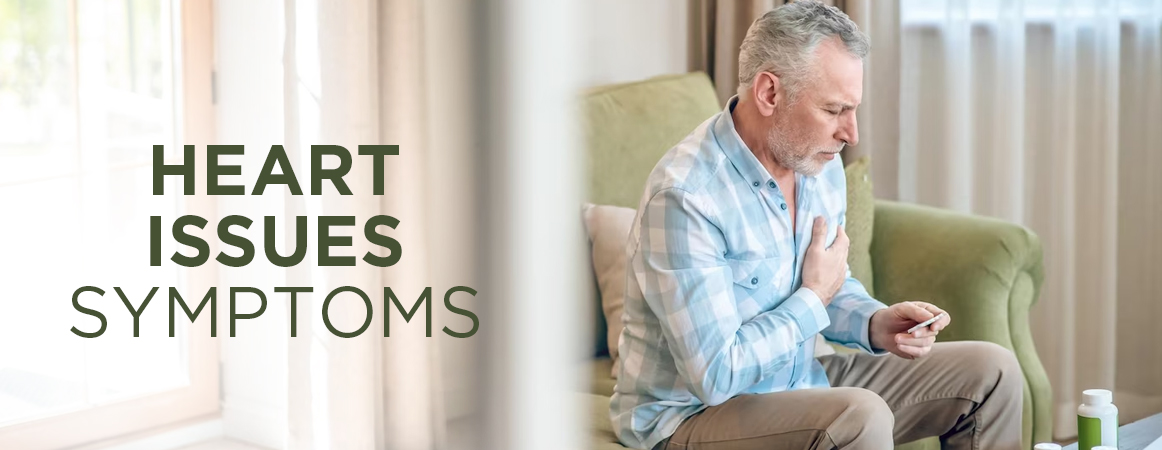Heart Issues Symptoms
There are several heart conditions and issues which are commonly known as heart disease. Heart disease can affect a person’s ability to concentrate on work. Heart disease comes in various forms with different symptoms and treatments. Heart issues in men are often different from women. While men may experience chest pain, difficulty in breathing, and pain in the arms, back, or neck, women experience nausea, cold sweat, exhaustion, heartburn, and lightheadedness. Some heart-related problems are improved with lifestyle changes and medication whereas others might require surgical treatment, depending on the type and severity of the heart disease.
Common Heart Related Problems
Some of the common heart-related problems are coronary artery disease, heartbeat problems, congenital heart defects, heart muscle disease, and symptoms of heart valve issues.
Coronary Artery Disease (CAD)
Coronary artery disease is a most common heart-related problem in which the coronary arteries can become blocked, reducing the flow of blood, oxygen, and nutrients to the heart muscle. This decrease in the blood flow can cause chest pain and difficulty in breathing, and if a complete blockage occurs, it can result in a heart attack. Symptoms of coronary artery disease may not be noticeable until blockage causes severe problems like a heart attack. To prevent the onset of coronary artery disease, it is important to maintain a healthy lifestyle.
Heartbeat problems
Heart arrhythmias is a common term for heartbeat problems caused by irregular heartbeats. In this condition, the heart may beat very quickly or very slowly. Symptoms of heartbeat problems include chest pain, fainting, dizziness, fast heartbeat, slow heartbeat and difficulty in breathing, etc.
Congenital Heart Defects
Serious congenital heart defects become apparent immediately after birth with symptoms such as pale gray or blue skin, poor weight gain, and difficulty in breathing while feeding. Whereas, if the condition is less severe, the defects may not be noticeable until later in life. Symptoms of the less severe congenital heart include shortness of breath during exercise or movement, easy exhaustion, and swelling in the hands and feet.
Heart Muscle Disease
Heart disease symptoms that are stimulated by damaged heart muscle are also known as cardiomyopathy. In its early stages symptoms may not be noticeable but if the condition becomes severe, a person might suffer from fainting, dizziness, fatigue, swollen legs, ankles, or feet, irregular heartbeats, and difficulty in breathing.
Heart Valve Problems
Heart valve issues are also commonly known as valvular heart disease. There are four heart valves, that open and close in order to pass blood through the heart. There are many factors that can affect heart valves, a heart valve may get narrowed (stenosis), it may become leaky (regurgitation) or it may close improperly (prolapse). The common symptoms of heart valve issues are chest pain, fatigue, abnormal heartbeat, swelling in the ankles or feet, and difficulty in breathing.
When the heart chambers and valves’ inner lining is infected, this condition is called endocardium. Endocarditis is a life-threatening condition that either develops gradually or infects suddenly, depending on the type of germs causing the infection and the overall health of the heart. Common symptoms of endocarditis are dry cough, fever, difficulty in breathing, skin spots, weakness, and swelling in the belly area or legs.
When to See a Doctor
It is easier to treat heart disease when it is detected early. It is better to consult a doctor if you see any signs of heart defects especially when you have a family history of heart disease. In case of chest pain, difficulty in breathing, or fainting, seek immediate medical attention. MMI has top cardiologists in Karachi and this is an affordable and reasonable option


